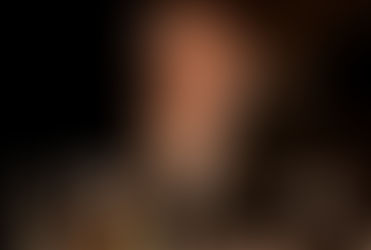Tartuffe
- Chris O'Rourke
- Mar 10, 2023
- 4 min read
Updated: Mar 17, 2023

Tartuffe. Image by Ros Kavanagh.
***
Comedy isn’t an easy nut to crack. Timing alone can often be hugely problematic. The engulfing deafness caused by the absence of laughter can sink a cast’s spirits if scenes funny in rehearsal fall flat before an audience. Or revitalise them when the audience responds. A little of both being the case with The Abbey Theatre’s production of Frank McGuinness’ adaptation of Molière’s 1664 classic, Tartuffe. One of France’s most beloved plays, Tartuffe is also one of its most adapted, with McGuinness’ muscular script holding its own with the best of them. Even if, at times, some judicious abridgements might have provided more kick as Tartuffe sets about using God and morality to bleed a family dry. His name becoming synonymous with tricksters, conmen and hypocrites, particularly those of a religious or moral persuasion.

Tartuffe. Image by Ros Kavanagh.
Reimagined with an Irish flavour, McGuinness’ script skilfully negotiates the play’s religious overtones. Something director Caitríona McLaughlin looks uneasy with, trying to shoehorn in modern resonances to supplant them, making strong choices in the process. Some work well, some not so much as she sets about emphasising Molière’s women, along with advocating for Tartuffe’s relevance to our life-coach, social influencing, shame canceling culture. Overworking obvious visuals to make modern connections. Even as modern meets period drama far more successfully in Katie Davenport’s sumptuous costumes, whose flickers of personality give the whole considerable visual finesse.

Naoise Dunbar and Emma Rose Creaner in Tartuffe. Image by Ros Kavanagh.
Davenport’s lush set might have given her costumes greater competition were it not for McLaughlin’s blind love of alternate spaces on stage. As in The Weir, McLaughlin sacrifices a disproportionate amount of space (around a quarter of the stage) to achieve a visual pyrrhic victory. The lifeless grey corridor looking like distracting dead space next to Davenport’s colourful, chandelier dining room. More successful is McLaughlin’s compositional use of said dining space for an energised opening; dance music and mobile phones (and later a laptop) hooking us into the contemporary world. The opening number also giving a playful nod to Jenna Ortega’s Wednesday. Yet as conversation begins things begin to drag as the absent Tartuffe is talked about and talked about some more. The modern, for the most part, receding. Popping up primarily via Sinéad Wallace’s composition and a sound design by Philip Stewart.

Geraldine Plunkett and Kevin Trainor in Tartuffe. Image by Ros Kavanagh.
If Tartuffe’s arrival energises events as people set out to expose his lechery, it presents its own problems. Given that Orgon, (a superb Frank McCusker) doesn’t seem to have lost all his marbles, and Geraldine Plunkett’s deliciously vicious grandmother Pernelle could give Lady Bracknell an acerbic run for her money, expectations established suggest qualities Ryan Donaldson’s Tartuffe doesn’t deliver on. Instead, Donaldson’s Tartuffe highlights a pathetic creature; leaning into the alluring modesty of a St. Francis of Assisi rather than the commanding charm of a televangelist. Showing less the seductive confidence of a Brad Pitt so much as the resistible appeal of Brad from Tech Support, exuding the sexual allure of a cat allergy. This is no bad boy, not even a wild boy, just a bold boy with a menacing streak when it's safe for him to do so. Making it hard to believe Tartuffe could pull the wool over a sheep’s eyes, let alone anything standing upright. And if that’s the point, it’s one that could have been made far more convincingly, cleverly and comically.

Aislín McGuckin, Frank McCusker and Ryan Donaldson in Tartuffe. Image by Ros Kavanagh.
Retaining Molière’s use of rhyme, McGuinness ensures it never feels like sitting through a Leaving Certificate recital of a Tennyson epic on too many occasions. Use of Irish colloquialisms enriching the experience; rhyming ‘hurly burly’ with 'short and curlies’ just one example of McGuinness' playful genius. Complimented, at times, by moments of physical comedy, which prove a hit and miss affair. If the seduction scene with Donaldson and a scene stealing Aislín McGuckin as wife Elmire, or the petulance of Naoise Dunbar’s Damis and Emma Rose Creaner’s Mariane prove terrific, other moments see cast, which include Amy Conroy, Pauline Hutton, Emmanuel Okoye, Darragh Shannon and Kevin Trainor, chomping at the bit when they really want to play like Clare McKenna’s battered and beaten Filipote.

Tartuffe. Image by Ros Kavanagh.
Like a modern televangelist on his third jet, Tartuffe is all about spiritual greed and religious manipulation. If its deus ex machina ending feels contrived, McLaughlin tries compensate by tacking on a last minute gender subversion pushed to the front of the stage. But like the production’s modern references, it’s too little, too late. If Tartuffe suggests style over substance, Davenport compensates by bringing considerable style to a generally tame rendering. Looking like Carry On Bridgerton at times, Tartuffe has some hilarious moments. But it could have been funnier and dug deeper. McGuinness’ script has enough ingredients for both.
Tartuffe, by Molière, a new version by Frank McGuinness, runs at The Abbey Theatre until April 8th, after which it undertakes a national tour.
For more information, visit The Abbey Theatre





















